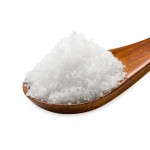A new study published in Nature and conducted by researchers in Israel states that while more study is needed, artificial sweeteners may induce glucose intolerance and promote diabetes. They say that the chemicals change the composition of bacteria in your gut, which changes how the body handles sugar. Studies have shown that these artificial sweeteners do not aid in weight loss, and may actually contribute to weight gain. Non-caloric sweeteners (NAS), or artificial sweeteners such as aspartame are widely used. While they are considered generally safe, scientific data supporting that view is sparse. Obesity and diabetes are linked to changes in gut bacteria, so the scientists looked at the effect of these chemicals on the microbiome in intestines. The researchers added saccharin … [Read more...]
Sunny Delight, Others Asked to Stop Marketing In-School Junk Food
Center for Science in the Public Interest has asked Sunny Delight, maker of Sunny D beverage, to stop a program that encourages parents, teachers, and students to collect 20 labels of the product in exchange for foods. CSPI said that Sunny D "encourages families to consume a drink that promotes diabetes, weight gain, and other health problems." The beverage only includes 5% juice; the remaining ingredients are sugar; artificial sweeteners sucralose, acesulfame potassium, and neotame; high fructose corn syrup; sodium benzoate; dyes Yellow 5 and Yellow 6; and water, along with vitamins and other ingredients such as xanthan gum and canola oil. A 16-ounce bottle of Sunny D Tangy Original has almost 7 teaspoons of sugar. CSPI nutrition policy director Margo G. Wootan said in a statement, … [Read more...]
CDC Vital Signs: Children Consume Too Much Sodium
The Centers for Disease Control and Prevention (CDC) has released a new Vital Signs monthly report that focuses on sodium in children's diets. The report states that a bout 9 in 10 U.S. children eat more sodium than recommended. Most is consumed as salt in processed foods. Children ages 6 to 18 years in this country eat an average of 3,300 mg of sodium every day before salt is added at the table. The recommended amount is less than 2,300 mg a day. A high sodium diet can lead to high blood pressure; in fact, about 1 in 6 children in this country has high blood pressure. Lowering sodium in your child's diet today can help prevent heart disease in the future. The taste for salt is established at a young age. Children eat about 15% of the daily sodium amount at breakfast, 30% at lunch, … [Read more...]
Green Coffee Bean Supplement Maker Settles FTC Charges
The Federal Trade Commission has settled with Applied Food Sciences, Inc. on charges that it used the results of a flawed study to market baseless weight-loss claims about its green coffee extract. The FTC stated that the study was "so hopelessly flawed that no reliable conclusions could be drawn from it." The flawed study was promoted on the Dr. Oz Show. The settlement requires the company to pay $3.5 million and to have scientific substantiation for any future weight-loss claims it makes, including at least "two adequate and well-controlled human clinical trials." The company made the false claims to retailers, who repeated the claims to consumers. Jessica Rich, Director of the FTC's Bureau of Consumer Protection said in a statement, "Applied Food Sciences knew or should have known … [Read more...]
CSPI Applauds Legislation to Protect Kids from Junk Food Ads
The Center for Science in the Public Interest (CSPI) is applauding legislation proposed in New York City to protect children from junk food marketing. Toys in fast food meals and other giveaways exploit children and tempt them into unhealthy food choices, according to that agency. New York City Councilmember Ben Kallos' legislation sets nutrition standards for meals that use toys and other incentives to tempt children. Fast food is marketed to children and teenagers more than any other food category. Corporations spend more than $700 million every year on marketing these products to children. And incentive items make up almost half of those promotions. Incentive items include toys, games, trading cards, admission tickets and other consumer products. The law would force restaurants to … [Read more...]
Children Consuming Too Many Vitamins in Cereals, Snack Bars
Environmental Working Group has posted a study stating that almost half of American children under the age of 9 consume "potentially harmful amounts of vitamin A, zinc, and niacin because of excessive food fortification, outdated nutritional labeling rules and misleading tactics used by food manufacturers. It is possible to overdose on these nutrients, especially the fat-soluble vitamins such as Vitamin A. If children consume too much Vitamin A, they can suffer liver damage, hair loss, and skeletal abnormalities. Too much zinc can lead to impaired copper absorption, anemia, changes in red and white blood cells, and impaired immune function. And too much niacin can cause rashes, nausea, and liver toxicity. The Institute of Medicine warned in a 2005 report for the federal Women, … [Read more...]
FDA Published Final Rule on Infant Formula Protections
The FDA has published its final rule setting standards for manufacturing infant formulas. Those standards include current good manufacturing practices, including required testing for Salmonella and Cronobacter. The manufacturers must also demonstrate that the formula they product supports normal physical growth. And finally, infant formulas must be feted for nutrient content three times: in the final product stage, before entering the marketplace, and at the end of the products' shelf life. Dr. Stephen Ostroff, FDA's acting chief scientist said in a statement, "FDA sets high quality standards for the safety and nutritional quality of infant formulas during this critical time of development." The rule applies to formulas intended for use by healthy babies without any "unusual medical … [Read more...]
House Republicans Let Schools Opt Out of Nutrition Standards
On Thursday, May 29, 2014, the House Appropriations Committee voted to pass a USDA funding bill that contains a provision letting the nation's schools opt out of rules on nutrition standards. The program faces opposition from the PTA, USDA officials, and advocacy groups such as Center for Science in the Public Interest. CSPI nutrition policy director Margo G. Wooten said in a statement, "Congress should be a celebrating the excellent progress that school systems are making toward implementing the USDA's nutrition standards. But instead, House Republicsns are playing politics with what's on school lunch trays and children's health. By allowing school districts to opt out of school nutrition standards, House Republicans are opening up the floodgates to let all the old junk food back into … [Read more...]
First Study of Its Kind Reveals Food Dyes in Brand Name Products
A new study conducted at Purdue University that has been published in the journal Clinical Pediatrics reports on the dye content of many processed foods. The Center for Science in the Public Interest (CSPI) states that the findings are "disturbing since the amounts of dyes found in even single servings of numerous foods - or combinations of several dyed foods - are higher than the levels demonstrated in some clinical trials to impair some children's behavior." Artificial colors are used in many beverages, foods, snack foods, and sweets in the U.S. The FDA limits the colors allowed in our foods to nine different types. Studies have shown that these chemicals can affect children's behavior. The amount of food dyes that are certified has risen from 12 mg per person per day in 1950 to 62 mg … [Read more...]
Climate Change Making Food Less Nutritious
A study published in the journal Nature has found that climate change is making our food less nutritious. Legumes, corn, wheat and rice are primary sources of zinc and iron. When those crops are grown under field conditions at CO2 concentrations predicted for the middle of this century, about 40 years away, they have significantly lower concentrations of zinc and iron, two essential nutrients. Scientists say these deficiencies will cause a loss of 63 million life-years annually across the globe. Life-years are a measure of disease burden, expressing the years lost to illness, disability, and early death. Dr. Samuel Myers, lead author of the study said, "rising concentrations of carbon dioxide in the atmosphere are threatening global human nutrition by reducing the amounts of very … [Read more...]













